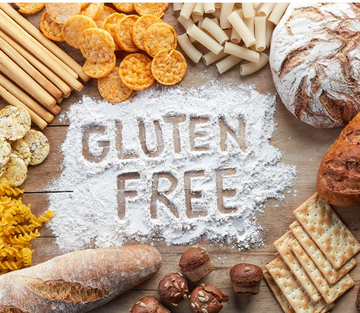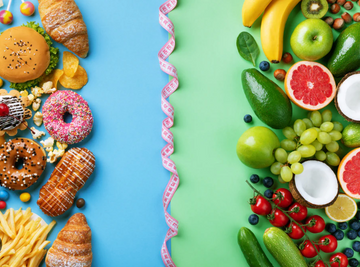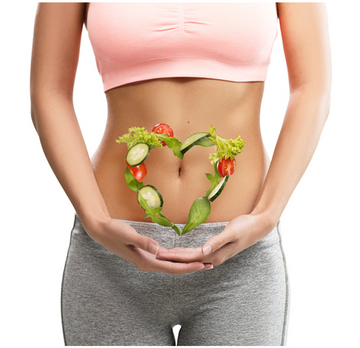Some of us tend to rely on expensive creams, serums, and treatments in our quest to achieve a healthy, glowing complexion. Although these can help, your diet can also play a huge part in clearing up your skin, so we’ve put together a list of the best foods to eat for radiant skin.
THE LOW DOWN ON WHY DIET AFFECTS YOUR SKIN
The epidermis (top layer of your skin) is the body’s largest and fastest-growing organ. The food you eat breaks down and becomes the cells that create your epidermis, so you can nourish your skin from the inside out by eating healthy skin-nourishing foods which can assist in reducing acne, inflammation, dry and flaky skin, and even premature ageing.
WHAT TO ADD TO YOUR DIET FOR GLOWING SKIN

ESSENTIAL FATTY ACIDS
Essential fatty acids play a vital role in maintaining flexibility within the cell walls of your skin, improving circulation and oxygen uptake. They help maintain the skin’s natural oil barrier, keeping your skin hydrated, provides your skin with anti-ageing properties and thanks to their anti-inflammatory properties, can assist in reducing redness and irritation.
You can find essential fatty acids in fish such as salmon & tuna, and flax seeds, chia seeds and walnuts are also rich in Omega-3 fatty acids. These foods also contain zinc, vitamin E, selenium and protein, which are all key nutrients for your skin for tissue and collagen production as well as repair and cell regeneration.
VITAMINS
Fat-soluble vitamins, most importantly Vitamin E, may be effective in reducing UV damage in the skin. Avocados are rich in healthy monounsaturated fats and Vitamin E and C. Leafy greens such as spinach, kale and celery, nuts and seeds are also rich in Vitamin E and packed full of essential minerals and vitamins for healthy skin.
Vitamin C plays a role in collagen synthesis and can have an anti-ageing effect. As an antioxidant, it fights off free radicals that can otherwise be damaging to the fibres that support skin structure (collagen and elastin). Kiwi fruits, mangoes, oranges, lemons and berries such as blueberries, blackberries, strawberries and raspberries are all bursting with Vitamin C – so make sure you get these fruits in your daily diet! These all can help to prevent premature ageing of the skin, including wrinkle development. The natural plant pigments in berries (polyohenols, flavonoids, anthocyanins and tannins) can also help to make your skin appear glowing and vibrant.
Vitamin A (retinol) is one of the most widely acknowledged nutrients for healthy skin, promoting cell turnover. It can be found in oily fish, milk, eggs, and orange and yellow vegetables. Vitamin B6, found in poultry, fish, and wholegrain cereals, important for new cell production, skin repair and maintenance. Zinc also plays a similar role, and is abundant in oysters.
LOW GI FOODS
Foods that raise blood sugar levels too quickly (high GI foods) cause a release in the hormone insulin which can then cause the oil glands in your skin to increase oil production, increasing susceptibility to acne. Low GI foods such as lentils, beans and sweet potato are rich in protein and minerals, and prevent spikes in blood sugar levels.
ISOFLAVONES
Isoflavones have been shown to improve collagen and skin elasticity and reduce wrinkles. These are found in soy products including tofu, tempeh and soy milk.
WATER
The most important contributor to skin health is water! Your body is more than 65% water, and your skin needs water to stay healthy and hydrated. It helps to flush toxins out of the body, which could build up in your skin resulting in clogged pores and acne. Aim for 2-3 litres of water per day.
If you’re wanting to take the guess work out of healthy eating, discover our range of weekly Be Rapid programs that will help you see results results on and off the scales including a clearer complexion, better sleeping habits and reduced bloating.





